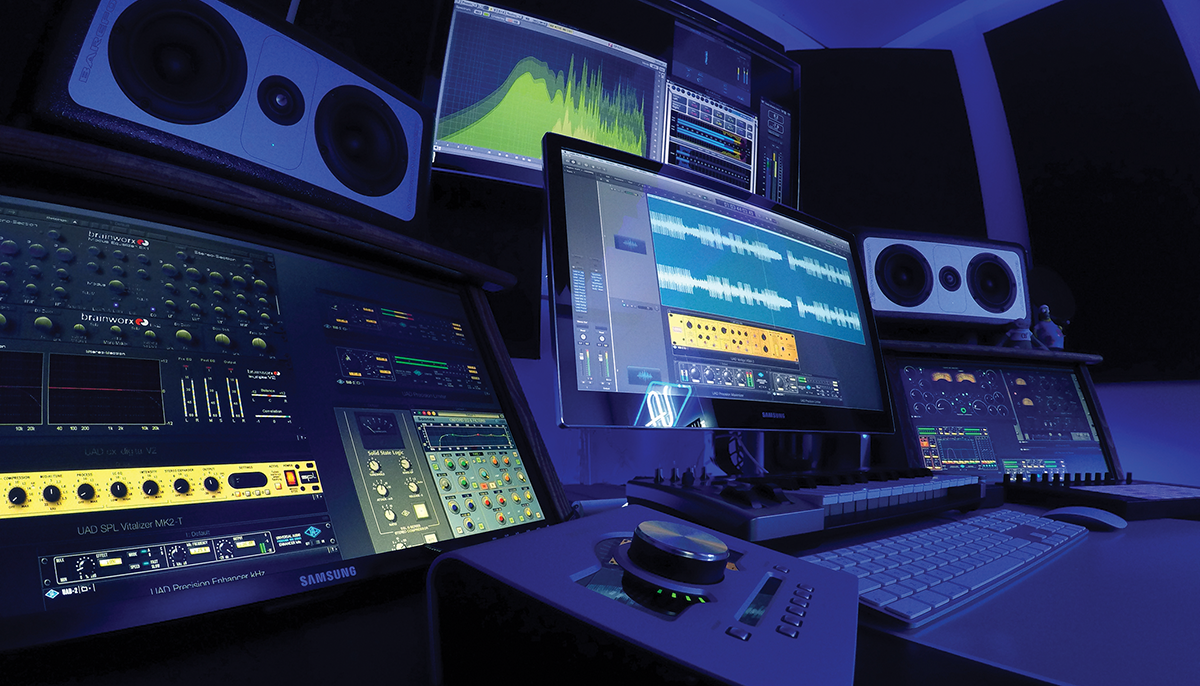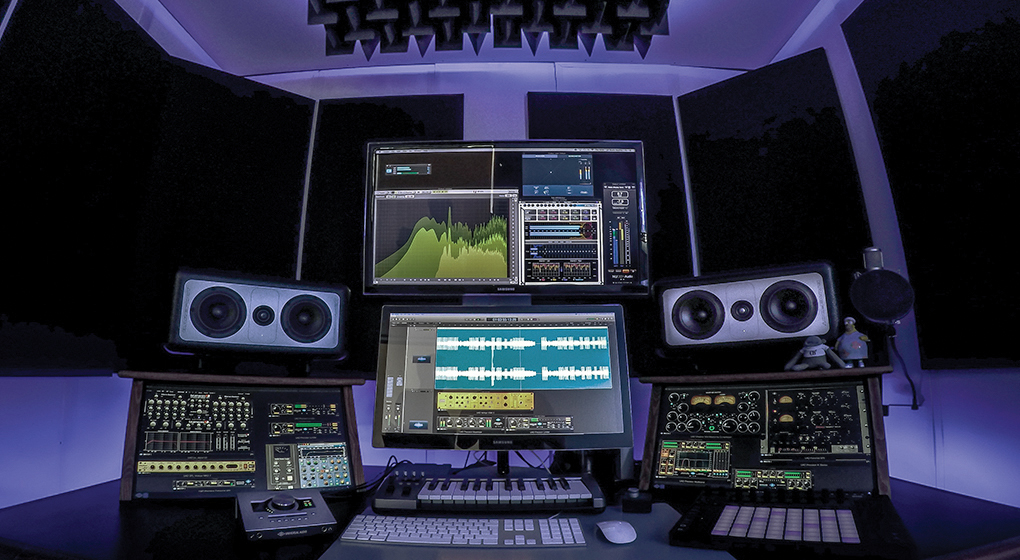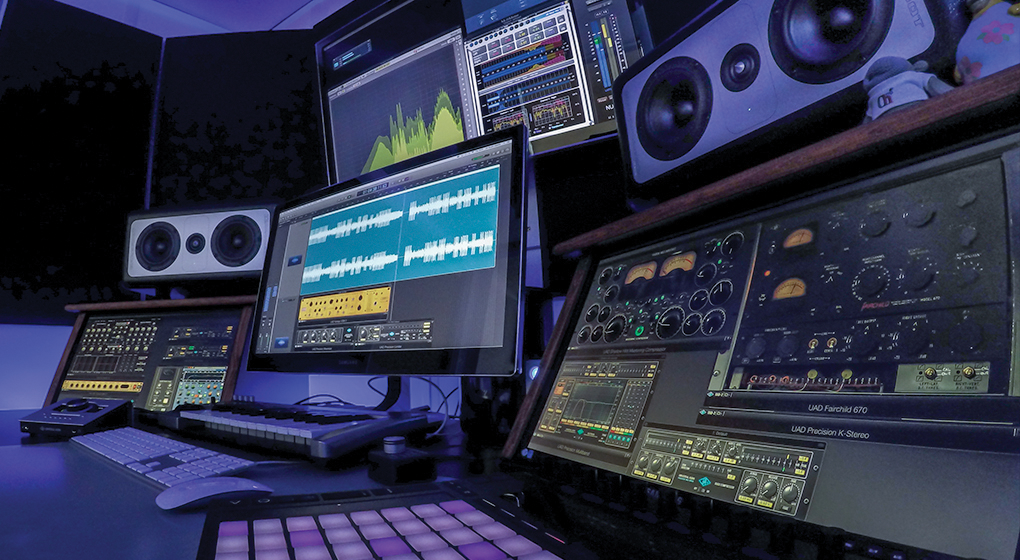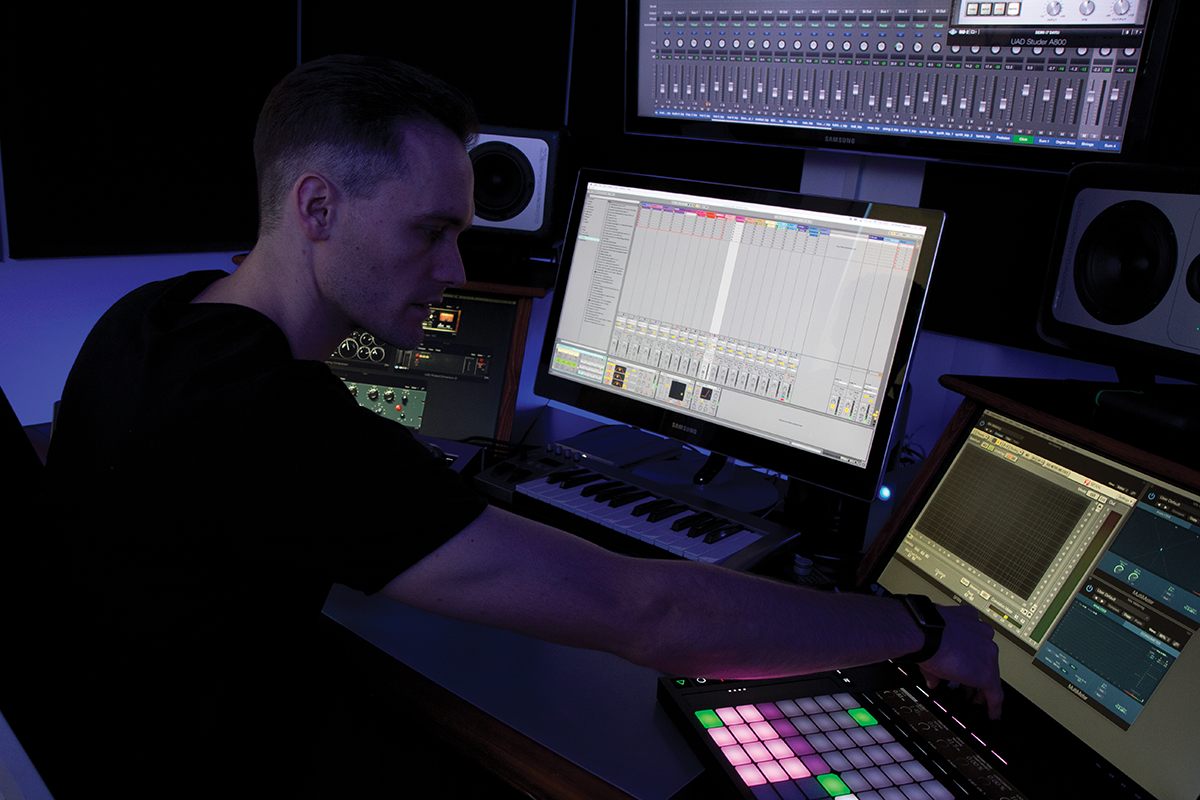Label Worx – The MusicTech Interview
Our industry spotlight shines on Label Worx – the UK company which has become the go-to provider of business, IT, promo, management and mixing services to dance-music producers and labels. We talk to co-founder Matt Abbott about the rise of Label Worx Nearly a decade ago, DJs Chris Chambers and Matt Abbott met in a […]

Our industry spotlight shines on Label Worx – the UK company which has become the go-to provider of business, IT, promo, management and mixing services to dance-music producers and labels. We talk to co-founder Matt Abbott about the rise of Label Worx

Nearly a decade ago, DJs Chris Chambers and Matt Abbott met in a nightclub and struck up a friendship which led to them forming a label, Alter Ego Records, in 2005. They were both working in IT at the time, and because they needed an efficient way of managing the record company’s data, they developed an online system (the Label Management System), which Label Worx customers still use today.
From these beginnings, Label Worx launched as a distribution and promo company, in 2007: today, it’s a major player when it comes to distribution, promo, royalties, mixing and mastering, demos and web services for independent record labels of all stripes – freeing up their clients to focus on the fun part of actually making music.
MusicTech: Give us a brief history of Label Worx and what you do within the company…
Label Worx: We started Label Worx back in 2007, when myself and Chris Chambers were producing trance and running our label, Alter Ego records. We designed a promo system for sending out MP3 promos, and a system that allowed us to deliver music to stores for distribution; soon, we had friends in the industry wanting us to do the same for their labels and also polish and master their tracks. From here, everything grew and became Label Worx.
Now, we are working with a huge number of dance-music record labels, including Dirtybird, Toolroom, Enhanced Music, Stealth, Size Records, Yoshitoshi, and a whole lot more. We’ve mastered over 12,000 dance-music tracks to date and more recently, we started mixing and mastering for Judge Jules and his new Judgement Recordings imprint and Amine Edge & DANCE for their CUFF brand.
Projects we’ve completed at Label Worx have seen release on Universal, Spinnin’ Records, Ministry Of Sound, A State Of Trance, Warner, Sony… Other than being the Head Mastering Engineer, I’m also one of the Directors, along with Chris Chambers. Myself and Mix Engineer Alex Powell work together on all of the Mix & Master projects. After all, two pairs of ears are better than one!

The bridge on the USS Light Worx
MT: What was your original goal with Label Worx?
LW: We never thought Label Worx would grow into what it is today. After all, it started in my bedroom to help us run our own label more efficiently and help friends get their tracks mastered ready for vinyl pressing.
I would say we have more than achieved our goal. We now have three offices that are fully staffed with support teams, developers and business-relations staff, along with our fully equipped mastering studio that myself and Alex head up. We have just recently opened our Berlin HQ, which allows us to make more business connections in western Europe.
MT: Which have been your most successful services and why?
LW: We have recently launched a full mix-down service, which complements our mastering packages very well. We’re overwhelmed with the interest we’ve had in this and it’s great to have labels and producers trust us to deliver their mix and masters.
The results we are getting from this are far superior for our clients compared to if they just ordered a standard mastering package. We’re adding clarity, depth and detail to some already incredibly well-produced records. We’re firm believers in letting go of a production and letting someone else mix it down; lending someone else’s ears to the mix-and-master stage allows attention to be focused on elements the producer may not have been focusing on so much.
This translates into a superior final product, with some little nuances in the mix that may not have been brought to light. As a producer, it’s best to focus on the production and writing of a track. Lending this to a mixing and mastering engineer who is skilled in balancing a final mix, coupled with a master from an equally as good set of ears, can make a whole world of difference to the end result. This can turn a good record into a hit record.

7,000 labels? We’ll get a move on then…
MT: What do you think about the way music production has gone over the last few years in terms of technology? What’s been the good, and the not so good?
LW: There have been huge benefits from music tech advancing in the way it has. Back when we started, it cost thousands to get the right gear to make a record; now, anyone can do it with a laptop and a few plug-ins, which is great to see and a lot of artists have been discovered from this.
There is definitely more badly made music out there than ever – the attention to detail has gone in a lot of music, because people just knock things out without having any experience or knowledge on the science of sound and how it works. We see a lot of badly made music come to our studio to be fixed and this is simply down to the artists not having the knowledge and understanding of how music production actually works. This has led to the market being saturated in poorly made music and makes it difficult to find the gems.
Back when it cost a lot of money to make music, it was difficult to get tracks signed, so the quality of what was being made, not just sonically but musically, had to be A-grade, otherwise labels wouldn’t invest the money into promotion and pressing records. Now with the digital era, a lot of artists start a label, release badly produced and mixed music and expect it to be a sensation overnight.
This all goes back to what Deadmau5 said on Twitter regarding Paris Hilton becoming a DJ: It’s like being a fan of F1 racing, there is nothing wrong with loving the sport, supporting it and learning to become a skilled driver.
What is wrong, however, is taking one of those fans and sticking them in a multi-million pound car and letting them race on the track with the pros and paying them thousands of pounds to mess it all up.
This is where technology is letting down the music industry. Another thing to take note of is that, up until a few years ago, producers and artists had to physically wire up their equipment which gave them a better understanding on how a piece of hardware worked.
Nowadays, it’s a lot easier and all you have to do is open a plug-in – this understanding of ins and outs is gradually being lost. Not understanding this can result in poor productions, as sounds are run far too hot in the plug-in in the chain. This is all because there is no understanding of how to set a chain up manually.
MT: So it sounds like you’re not advocates of using total in-the-box production for music making. But you must see the advantages and disadvantages…
LW: There are definitely pros and cons, but the main issue is that it takes a lot of work to get music sounding as rich digitally as it would had it been produced through thousands-of-pounds-worth of legendary hardware. This can be achieved with skill and the right equipment though, all inside the box.
Our whole mixing and mastering suite is built up based on UAD equipment – UAD has managed to make the most accurate plug-ins that emulate the best vintage hardware, so much so that producers working with the likes of U2 are happy to abandon the hassle of using old vintage gear and are now working 90 per cent in the box with UAD software and hardware. Using this correctly, we’re achieving an ultra-modern sound with the warmth and character of classic vintage gear, without having any noise issues and faffing around setting up the gear for each track we work on. This also saves us time, allowing us to work with more clients but still achieve the best results.

I would say knowledge of your equipment and a little of the right software will get you a better sound than all the gear and a little idea. Having said that, there is a lot of fun to be had making and mixing music with hardware and there is a huge element of creativity missing when you’re writing a track on a laptop.
There is something magical about getting your hands on a Moog filter and listening to it bite the oscillators as it opens up like a warm dragon’s breath. Ideally, a balance of hardware and in-the-box programming at the production stage will make for a whole lot of fun and more creativity.
MT: Working with so many labels and artists, you must get asked for tips all the time. So what are your most frequently asked questions at Label Worx?
LW: We get asked a lot about getting a bassline and a kick to sit in a track; after all, this is the fundamental of a quality dance-music track and this is where we hear the most mistakes. The most important thing here is making sure your kick is in key with the rest of your track.
This way nothing will harmonically distort and it will free up some of your frequency spectrum, allowing you to achieve a louder and more harmonious low end. Because the kick is powering through the majority of the track, when this hits, it takes up most of the dynamics. If this part doesn’t fit with the rest of the elements, it’s like sticking a square peg in a round hole. Especially when it comes to compressing and limiting the whole track. If this is fighting with everything else in your track, it will distort at a lower perceived volume.
So the bottom line is to make sure your kick is in key with your bassline. Then you’ll find the whole thing sits a lot better. Apply a little sidechain on the bass against your kick so it cuts through, and then balance the two. From here, bring in your other elements.
MT: You must hear a lot of different levels of quality in the mixes that you get. Is there a common trait in terms of quality, or maybe a common mistake in the mixing that you hear?
LW: We hear a lot of premasters come to us that have been mixed completely flat because they used an already mastered track as a reference point. Especially with dance music, there needs to be movement between the frequencies with a low-end punch that sits a little above the rest of the track.
This allows us to pull everything else up to the low end and allow dynamics to move around in the track. If a track is already mixed completely flat, everything tends to move up and down at the same time, resulting in a flat-sounding master with no weight in the bass or clarity in the midrange and tops. Our best advice is to mix your track down so the kick and bass are always dominant in the track.
If you look at your multimeter, the lower end should bounce up as the top drops a little and so on. If you have a slightly awkward-looking smile on your multimeter that has a lot of movement, this will translate into a better master.

LabelWorx Mix Engineer Alex Powell
MT: Do you have any advice for anyone just entering the world of music production or mastering who wants to make a career out of it?
LW: Get as much experience as you can and work with as many other producers and engineers as possible. To make any money from this game, you need knowledge and experience. You can only blag your way so far if you can talk the talk but not walk the walk.
Get used to using a certain set of tools that work well for you and don’t get caught up thinking your music will be better if you buy more gear. It won’t. You will just have more gear and less idea what to do with it.
Write music you love, not what everyone else is making and develop your own sound – if you make what everyone else is then you will always be 10 steps behind.
MT: You’ve made a great impact in the world of mastering. What do you think your lagacy willl be?
LW: We would love to be remembered as the company that got things done fast and efficiently. Our whole drive for the company is efficiency and accuracy.
That, and we like to think we’re a cool bunch to work with. We’ve made a huge contribution to the dance-music industry by providing affordable services to independent labels. This in itself is a great thing to be remembered by.

LightWorx Director Matt Abbott
MT: What is the future of music production, in less than 100 words?
LW: If it all heads the right way, more DSP-based applications such as UAD, but instrument based. If this happens, then the hardware realm will be within easier reach for everyone working from their bedrooms.
MT: And finally, a gratuitous plug for your company and any upcoming services?
LW: Head over to www.label-worx.com to check out the services that we offer to record labels. We are Dance Music Distribution, Royalty Accounting, Promo Sending, Demo Management and Mix & Master specialists.